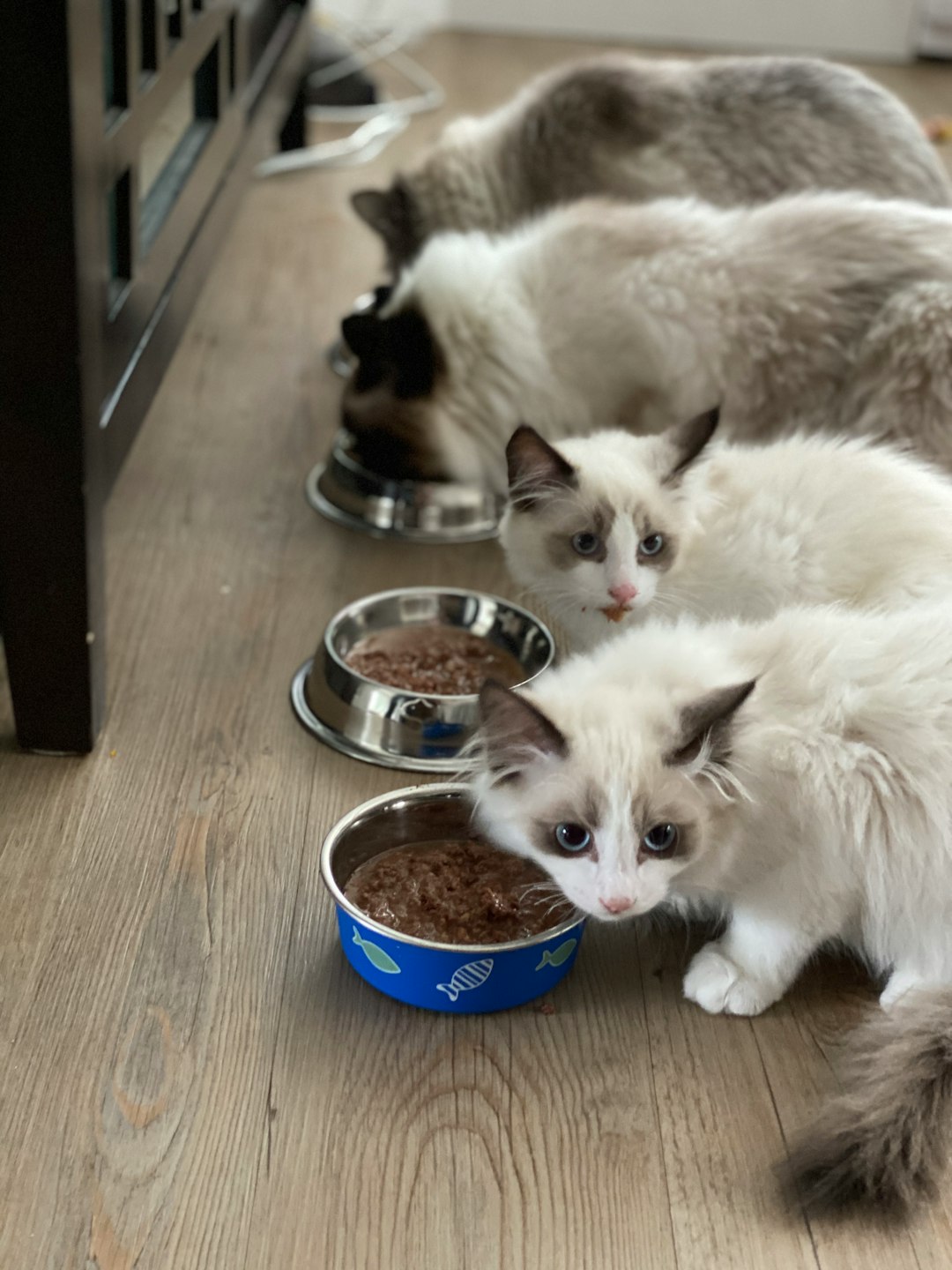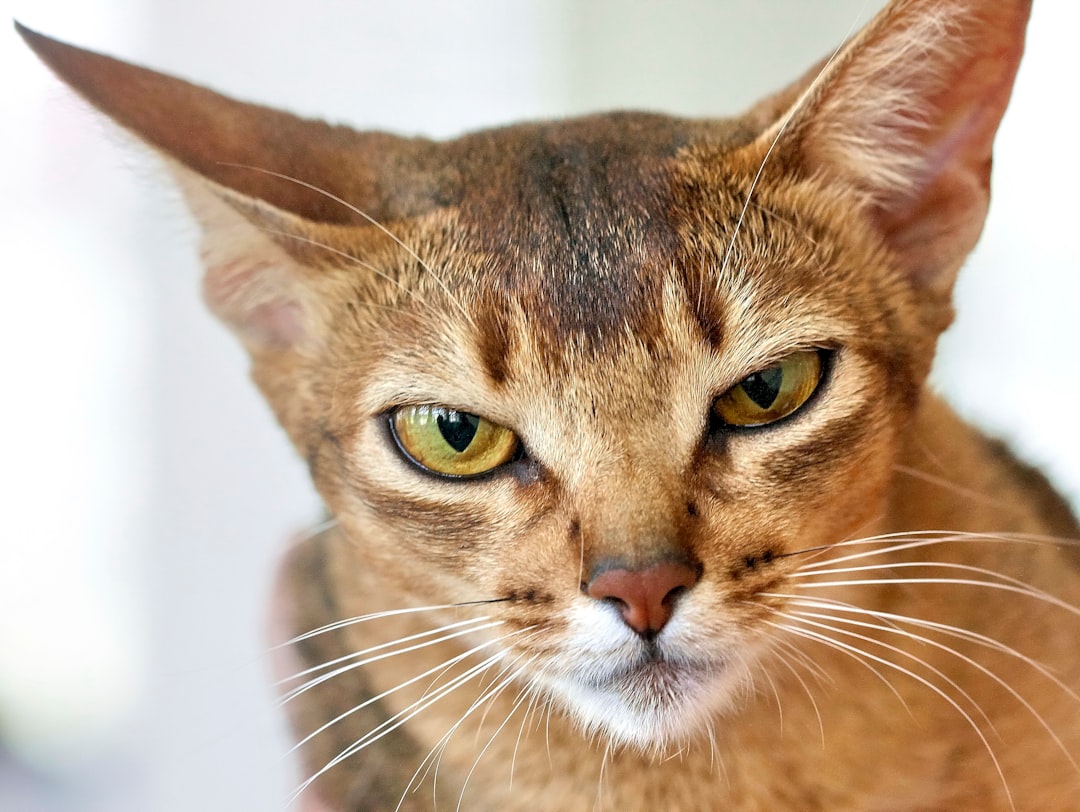As a cat owner, you know that keeping your feline friend happy and healthy is a top priority. One delightful way to show your affection is through cat treats, which not only serve as tasty rewards but also play a vital role in your cat’s overall diet. In this post, we will explore the top 10 must-have snacks that are sure to make your kitty purr with joy. Moreover, we’ll dive into important health considerations to keep in mind, along with tips on how to introduce new treats to your furball. Plus, we’ll share exciting ways to serve these delicious snacks and guide you on where to find them. Get ready to elevate treat time for your beloved pet!
The Importance of Treats in a Cat’s Diet
Understanding the role of treats in a cat’s diet is crucial for feline parents. While the foundation of any cat’s diet should be a balanced main meal, treats can serve various purposes that contribute positively to a cat’s overall well-being.
Nutritional Benefits of Treats
- Additional Nutrients: Many treats are fortified with vital nutrients such as vitamins and minerals. These can complement your cat’s regular diet, ensuring they receive additional health benefits.
- Variety and Taste: Cats can be notoriously picky eaters. Introducing different flavors and textures through treats can keep them engaged and less likely to refuse their main meals.
- Dental Health: Certain types of treats are specifically designed to support dental health. Crunchy textures can help reduce plaque buildup, preventing oral diseases.
| Nutritional Aspect | Example Treat | Benefit |
|---|---|---|
| Vitamins | Salmon-flavored bites | Supports immune function |
| Dental health | Crunchy kibble | Reduces plaque and freshens breath |
| Fiber content | Dental sticks | Aids digestion and prevents hairballs |
Treats as Rewards for Training
Utilizing treats for positive reinforcement is highly effective during training. Cats respond well to reward-based training, making treats a valuable tool:
- Reinforcement: Using treats when your cat successfully follows a command builds a strong association between actions and rewards.
- Behavior Modification: Employing treats can help to modify undesirable behavior by rewarding correct actions, which encourages repetition.
Enhancing Bonding Time with Your Cat
Sharing treats enhances the bond between you and your furry friend:
- Interactive Play: Incorporating treats in playtime, such as hiding them around the house, encourages exploration and physical activity.
- Quality Time: Offering treats during cuddle sessions or after grooming reinforces companionship, making your cat feel loved and secure.
Incorporating treats into your cat’s diet, therefore, is not merely about indulgence; it plays a significant role in their nutritional intake, training, and emotional connectivity. Remember, moderation is key to ensure you maintain a healthy balance that supports your cat’s weight and well-being.
Top 10 Cat Treats for Every Feline
When it comes to pampering your feline companions, selecting the right treats is essential. Here’s a curated list of the top 10 must-have snacks that cater to every kitty’s palate, ensuring they remain healthy and happy.
Choosing the Right Treats by Age and Size
Cats have various needs dependent on their age and size. Here’s a breakdown of suitable treats for different life stages:
| Age Group | Size Category | Recommended Treat Types |
|---|---|---|
| Kittens | Small | Soft, chewable treats that aid in teething |
| Adult Cats | Medium | Crunchy kibble or freeze-dried meat treats |
| Senior Cats | Large | Soft, easy-to-digest treats for sensitive teeth |
Transitioning your kitty to new treats should consider these vital categories to help tailor their diet effectively.
Popular Brands and Their Offerings
Several brands have gained trust among cat owners for providing quality snacks that are beneficial for felines:
- Greenies: Known for dental health, these treats help reduce tartar and promote fresh breath.
- Fancy Feast: Offers a variety of gourmet treats in different flavors and textures to suit picky eaters.
- Petstages: Engages indoor cats with playful treat options designed for mental stimulation.
Each brand has its unique offerings to cater to various dietary needs and preferences.
Homemade Treats: A Healthy Option
For those who prefer a DIY approach, homemade snacks can be a health-conscious alternative. A few easy-to-make recipes include:
- Chicken Jerky: Bake thin slices of chicken breast until crisp.
- Fish Flakes: Dehydrate fish scraps to make savory flakes that can be sprinkled on regular food.
- Pumpkin Balls: Mix canned pumpkin with oats and bake for nutritious bites.
These homemade options allow you to control ingredients, ensuring your feline receives only the best nutrition.
Health Considerations When Choosing Treats
When selecting snacks for your feline companion, prioritizing their health is essential. Various factors must be taken into account to ensure that you provide treats that not only appeal to your cat’s taste buds but also promote their overall well-being. Here are some key health considerations:
Understanding Ingredient Labels
Reading and understanding ingredient labels is crucial when evaluating the quality of any snacks. Here’s what to look for:
- Whole ingredients: Opt for treats that list real meat or fish as the primary ingredient. This ensures a high protein content, critical for a cat’s diet.
- Minimal additives: Choose products with fewer artificial colors, flavors, or preservatives. These can be harmful in the long run.
- Nutritional value: Look for treats fortified with vitamins and minerals that can boost your cat’s health. Ingredients like omega-3 fatty acids can support a healthy coat and skin.
Allergies and Sensitivities to Watch Out For
Cats can have allergies or sensitivities to certain ingredients, thus monitoring these is vital:
- Common allergens: Be aware of proteins like beef, dairy, and fish. If your cat has had adverse reactions, avoid these in treats.
- Symptoms of allergies: Signs may include itching, gastrointestinal upset, or respiratory issues. Consult your vet immediately if you observe any of these symptoms.
- Try limited-ingredient treats: If your cat has sensitivities, consider limited-ingredient options that minimize the risk of allergic reactions.
Portion Control for Treats
Treats should complement your cat’s balanced diet rather than replace it. Understanding portion control can help maintain a healthy weight:
- Caloric intake: Treats should make up no more than 10% of your cat’s daily caloric intake. Consult your veterinarian for precise caloric recommendations based on your cat’s size and activity level.
- Use smaller treats: Opt for smaller-sized options that allow for frequent rewarding without overindulging.
- Monitor weight: Regularly check your cat’s weight and adjust treats based on their condition to promote health.
By being informed and cautious when choosing snacks, you not only ensure delicious rewards for your feline but also support a healthier, happier life.
How to Introduce New Treats to Your Cat
Introducing new snacks into your feline’s diet can be a delightful experience for both of you. Ensuring it is done correctly is crucial to avoid digestive issues and to make new treats appealing. Here are some effective methods to introduce new treats to your cat.
The Gradual Introduction Method
Transitioning to new snacks should be done gradually to prevent any unwanted reactions. Here’s a simple approach:
- Start Small: Offer a tiny piece of the new treat, about the size of a pea.
- Mix It Up: Combine the new snack with a familiar one. This will make it less intimidating for your furry friend.
- Monitor Responses: Observe your cat’s reaction over a few days. If they seem to enjoy it, gradually increase the portions.
Utilizing this method reduces the risk of gastrointestinal distress while allowing your cat to acclimate to different flavors and textures.
Observing Reactions to New Treats
Keeping a close eye on how your cat reacts is crucial. Look for:
- Positive Indicators:
- Eager sniffing or pawing at the treat
- Purring and relaxed body language
- Quick consumption
- Negative Indicators:
- Signs of distress such as vomiting or diarrhea
- Avoidance or disinterest
- Excessive grooming or licking of the lips
If any adverse reactions occur, refrain from offering that specific treat and consult a veterinarian if necessary.
When to Avoid Certain Treats
Some situations are critical when deciding to introduce new snacks. Consider the following:
| Situation | Advice |
|---|---|
| Recent Illness or Surgery | Wait for recovery before trying new snacks |
| Known Allergies | Skip treats that contain potential allergens |
| Unfamiliar Brands or Ingredients | Research or consult a vet before purchase |
| Age-Related Sensitivities | Choose treats suitable for young or elderly cats |
By remaining vigilant and attentive to your cat’s needs and responses, you can successfully introduce new snacks into their diet, helping to keep mealtime exciting!
Fun Ways to Serve Cat Treats
Cats are naturally curious and playful creatures. Serving treats creatively can enhance their mealtime experience and encourage mental stimulation. Here are some fun ways to serve those delightful snacks to your feline friend.
Treat Dispensing Toys
Treat dispensing toys are an excellent way to engage your cat while they enjoy their snacks. These toys not only promote interactive play but also encourage healthy eating habits by slowly dispensing treats as the cat plays.
- Benefits:
- Reduces boredom by keeping your cat entertained.
- Promotes physical activity and mental engagement.
- Prevents overeating by controlling treat distribution.
| Toy Type | Key Features | Best For |
|---|---|---|
| Balls | Roll around, releasing treats | Active play |
| Puzzle toys | Different compartments, varying difficulty | Problem-solving skills |
| Feeder mats | Hide treats in textured surfaces | Sniffing instincts |
Creative Ways to Hide Treats for Playtime
Another engaging method to serve treats is by hiding them around your home. This approach can turn treat time into a fun scavenger hunt that taps into your cat’s natural hunting instincts. Here are some creative ideas:
- Under rugs: Hide treats beneath a small rug or mat for them to discover.
- Inside boxes: Place treats in empty boxes and let your feline explore.
- Behind furniture: Tuck treats behind furniture for a slight challenge, ensuring safety first.
Using Treats in Interactive Games
Combining treats with interactive games can further motivate your cat to participate in play. Here are some entertaining games that involve treats:
- Clicker Training: Use a clicker to train your cat and reward them with treats for desirable behavior.
- Obstacle Course: Create a mini obstacle course and reward your pet with delicious treats each time they successfully complete a section.
- Hide and Seek: Call your cat and, when they come, reward them with treats hidden around the play area.
By incorporating these fun serving methods into your cat’s routine, you not only enrich their experience but also strengthen your bond with your furry companion.
Where to Purchase Cat Treats
Online Options vs. Local Pet Stores
When it comes to buying snacks for your feline friend, the choice between online shopping and local pet stores can significantly influence your options. Here’s a closer look:
- Online Shops:
- Variety and Convenience: Websites like Chewy, Amazon, and Petco offer an extensive selection, including rare and specialized options. Shopping online allows you to browse customer reviews, compare prices, and enjoy the convenience of home delivery.
- Subscription Services: Consider subscription boxes that cater specifically to felines, providing unique treats delivered to your doorstep monthly.
- Local Pet Stores:
- Immediate Availability: Buying in-store means you can instantly pick up your desired snacks without waiting for shipping.
- Personal Touch: Local stores often employ knowledgeable staff who can provide tailored recommendations based on your cat’s dietary needs.
| Feature | Online Options | Local Pet Stores |
|---|---|---|
| Variety | Extensive and specialized | Limited to shelf space |
| Convenience | Shop from home | Immediate purchase |
| Knowledgeable Staff | Varies by website | Usually available |
| Price Comparison | Easily done through multiple sites | Harder to compare |
Finding Quality Treats at Affordable Prices
To ensure your cat enjoys delicious snacks without straining your wallet, consider the following tips:
- Look for Sales: Many online retailers and local pet stores frequently offer promotions and discounts. Signing up for newsletters can give you early access to deals.
- Read Ingredients: Always check for high-quality ingredients. Choose options without artificial preservatives or fillers to ensure your pet’s health.
- Buy in Bulk: Purchasing larger quantities often yields cost savings. Just make sure your treats have a long shelf life and are stored correctly to maintain freshness.
Understanding Treat Storage and Shelf Life
Proper storage of snacks is crucial to ensure they remain safe and tasty for your feline companion. Consider these factors:
- Shelf Life: Most snacks come with a “best by” date. Be sure to adhere to these guidelines to avoid spoilage.
- Storage Recommendations:
- Airtight Containers: Transferring treats to airtight containers can help maintain freshness and prevent exposure to moisture.
- Cool, Dry Places: Store snacks in a cool, dry environment to avoid degradation from heat and humidity.
By understanding where to purchase snacks, how to identify quality options, and implementing best storage practices, pet owners can ensure that their cats enjoy healthy and flavorful treats every time!
Frequently Asked Questions
What ingredients should I look for in cat treats?
When selecting cat treats, it’s important to look for high-quality ingredients that are beneficial for your cat’s health. Ideally, the treat should contain real meat or fish as the primary ingredient, as these provide essential proteins. Additionally, look for natural preservatives and avoid artificial colors, flavors, or fillers like corn or soy. Nutritional supplements, such as omega fatty acids or vitamins, can also enhance the treat’s value, ensuring your cat enjoys a tasty snack that supports their health.
How often should I give my cat treats?
While treats can be a delightful addition to your cat’s diet, moderation is key. A general guideline is to ensure that treats make up no more than 10% of your cat’s daily caloric intake. Over-treating can lead to obesity and health issues. It’s best to use treats sparingly as rewards during training sessions or as occasional indulgences. Always monitor your cat’s weight and adjust their regular food and treat portions accordingly to maintain a healthy balance.
Are there any cat treats specifically designed for dental health?
Yes, there are cat treats that are specifically formulated to promote dental health! These treats are often textured or formulated to help reduce plaque and tartar buildup as your cat chews. Look for products that have the Veterinary Oral Health Council (VOHC) Seal of Acceptance, which indicates that the treats have been shown to be effective in promoting oral health. Incorporating these treats into your cat’s diet can help maintain their teeth and gums, alongside regular dental check-ups.
What types of cat treats are safe for kittens?
Kittens have specific nutritional needs that differ from adult cats, so it’s crucial to choose treats that are appropriate for their age. Look for kitten-specific treats that are enriched with necessary nutrients like DHA for brain development, and that are soft enough for their developing teeth. Avoid using adult cat treats in large quantities, as they may not provide the essential nutrients that kittens require. Always consult your veterinarian before introducing new treats to ensure they align with your kitten’s dietary needs.



